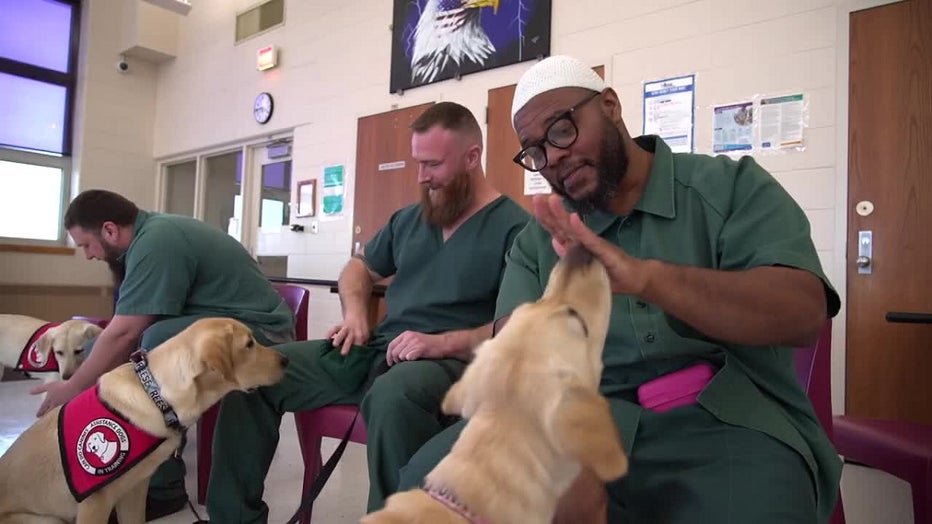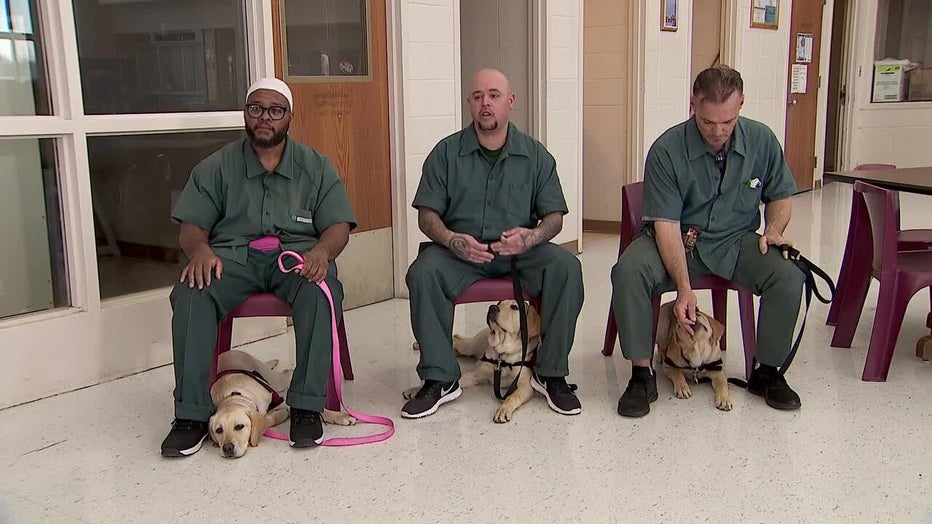Inmates in Wisconsin play role in training service dogs

Inmates in Wisconsin play role in training service dogs
Over the years, Twin Cities non-profit Can Do Canines has changed more than 800 lives, by matching service dogs with people in need. But many don?t know the story of the dog trainers working behind the scenes to make that possible.
(FOX 9) - Over the years, Twin Cities non-profit Can Do Canines has changed more than 800 lives, by matching service dogs with people in need. But many don’t know the story of the dog trainers working behind the scenes to make that possible.
"There’s nothing like it," inmate Todd told FOX 9. "It absolutely transcends anything that you could ever imagine in an environment that we’re in."
Even while incarcerated at Jackson Correctional Institution in Black River Falls, Wis., Todd and many others are making a difference for people on the outside.
Can Do Canines has inserted 60 to 100 dogs in seven prisons across Minnesota and Wisconsin. Program coordinator Dyan Larson goes to the facilities once a week to teach the inmates how to train the dogs. Then the inmates return to their cells to teach 70 commands to each puppy. "It’s like living with a roommate and a dog, in a room the size of your bathroom," Larson said.

Can Do Canines has inserted 60 to 100 dogs in seven prisons across Minnesota and Wisconsin. (FOX 9)
In the end, the dogs are able to pick up items, open doors, or even get help during an emergency. "And if you see the life that the dogs have here, if I was a dog I would totally want to be here," Larson said.
Around 46 inmates at Jackson Correctional Institution deserve credit for the program’s success. To get into the program, the men had to pass an extensive screening. But once accepted, they credit the dogs with removing tension among inmates, and inspiring a newfound sense of purpose, in an otherwise monotonous life.
"The love that I cannot give my family - that I denied my family of - I can give to this dog, and this dog is going to go out there and pass the love that I gave to somebody that really needs it," inmate Luis explained.

Working without pay, the inmates teach the dogs. (FOX 9)
Working without pay, the inmates teach the dogs; but the dogs are also teaching them a lesson. "I think you become selfless as opposed to starting out being selfish," inmate Steven explained.
"I can already feel the empathy building within me," inmate Richard added.
After six months, the dogs move on and eventually are matched with a person with special needs; from families impacted by autism, diabetes, seizures, hearing loss, or immobility. Can Do Canines is the engine making it all happen. The New Hope non-profit provides dogs to clients free of charge, and that is made possible, in large part, by of the volunteer work of inmates.
"We truly understand how deep this goes and it means a lot to us," inmate Todd said. "It’s remarkable."
"It just warms your heart and makes you proud that I had a part in helping that dog, and helping that person," inmate Emmanuel finished.

